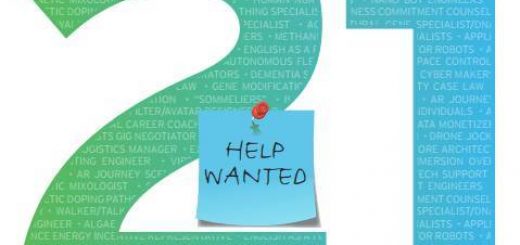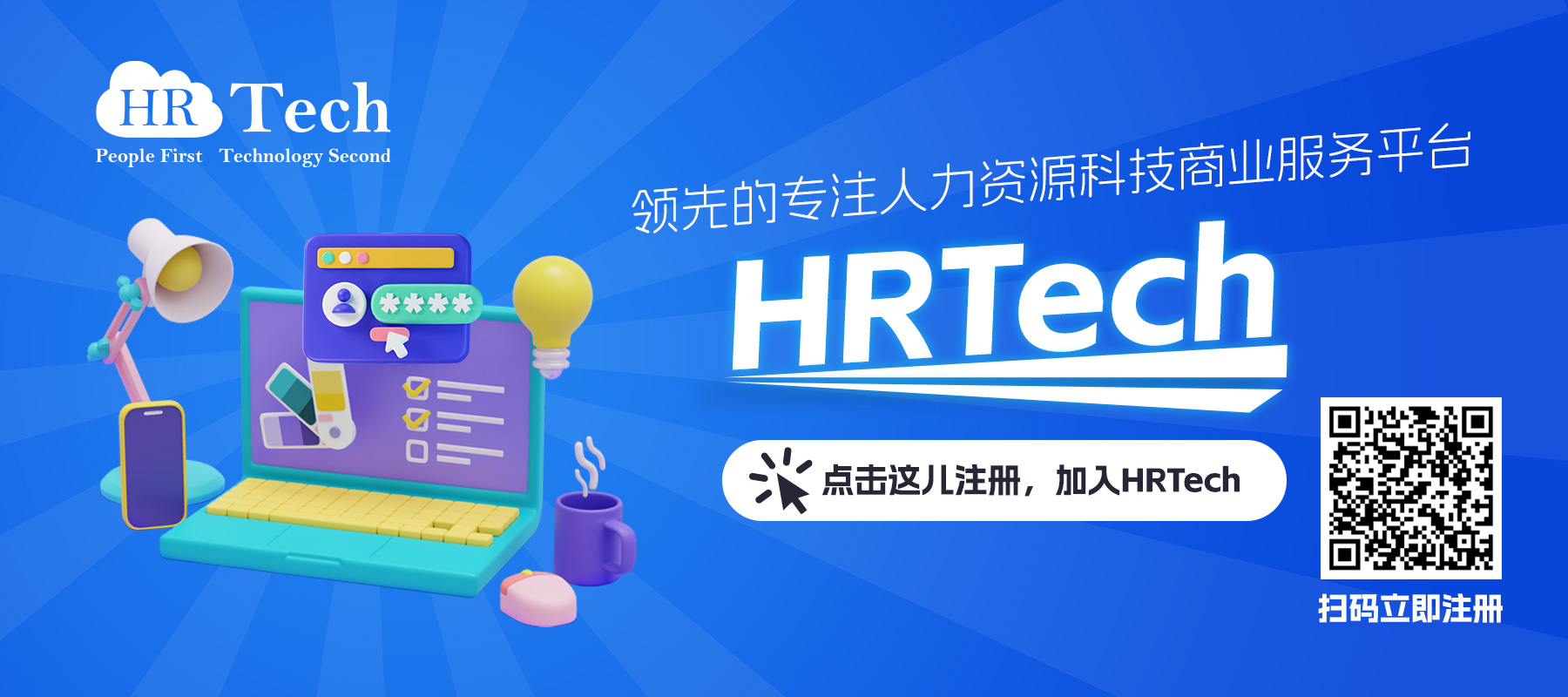-
 AI
AI
推荐一篇文章英文:为什么人工智能可能成为你的人力资源团队聘用和保留最优秀人才的工具
人工智能(AI)将以某种方式很快影响几乎所有的行业,但是2018年这项技术将会在一个行业中大放异彩:人力资源。
根据最近的Glassdoor报告,特别是在竞争激烈的领域,例如科技行业,人力资源部门越来越多的供应商正在提供AI解决方案,以帮助人力资源专业人员找到并留住顶尖人才。在美国这些供应商包括Entelo,Textio,Textkernal,HiringSolved和x.ai提供AI解决方案,帮助招聘人员整理简历,使用数据在求职者和职位之间进行预测性匹配,纠正工作描述中使用的语言偏差,并使用机器人计划候选人面试。在中国优面宝(umb.ai)作为面试管理的领导者,也开始布局相关的应用和服务,特别是在候选人面试安排以及面试管理上。
这个方面中美起点都差不多。
来自HRTechChina 专栏 的内容:
详细阅读这里:http://new.hrtechchina.com/Column/blog/blog_detail/home_uid/2/b_id/4.html
-
 AI
AI
自己做的简历HR看不上?这个“包办式”AI求职平台让你获得更好的二次机会
Stella.ai旨在为企业和求职者创造一个庞大的沟通平台,以确保更多的人能够获得聘用。
这对于求职者和招聘经理双方来说,都是一个挑战。今年,我们发现在许多初创公司都存在着这些方面的痛点:从投递简历到接受面试到双向选择。于是,Stella.ai 决定采用一套解决方案将这些问题统一处理。
Stella.ai的执行主席兼联合创始人Adam Zoia解释说:“我们做的是大平台业务,同时为应聘者和公司提供服务。”到目前为止,Stella.ai已经与100多家主要组织包括联合利华,希尔顿,捷蓝,Rackspace,Charter,Allergan,HBO,露华浓和雅诗兰黛等达成合作。
Zoia表示,在全球范围内,一些大公司每年至少可以获得450万份简历以及1000万个公开招聘的申请。很显然,这些申请者中只有很少一部分可以被录用。而通过这个“大数据筛选系统”,让AI进行匹配,Zoia认为Stella可以“将人员重定向到最合适的岗位”。
合作公司不是将候选人放在自己的封闭档案中,而是“邀请”已经申请职位的候选人加入Stella.ai的共享人才网络。如果他们没有申请成功——大部分人不是因为他们能力不够或者没有达到其他要求,Zoia认为,他们可以找到更好更合适的方案,并将这些人转接给其他招聘人员。
系统可以为每个人定制简历并进行投递,这也为求职者节省了大量的时间。Zoia表示,这可能只需要几个小时就能完成。有些预测表明,从一个应用程序获得面试的可能性低至8.3%。Zoia将Stella.ai比作大学为未来大学生使用的通用应用程序。“他们申请一次,”他说,“如果想要找到一份工作,只需点击一下即可。速度更快,也更便宜。”
Zoia表示,考虑到一些合作公司拥有大量申请者,在2018年,其数量增长将会超过300万人。如果通过Stella.ai被聘用,将获得2000美元(或小时工500美元)。公司也可以获得推荐信贷,类似于内部员工推荐计划。申请者可以免费加入。
虽然Stella.ai几个月来一直处于试运营模式,但Zoia表示他们无法分享具体的比较数据。他解释说:“我们并不能完全跟踪公司的招聘机制,所以无法进行比较。”
当然,AI执行的这个过程能做到的远远不止这些。招聘人员和招聘经理在选择候选人的最后环节不仅要考虑他们是否适合这个工作,还需要考虑人际关系。但是Zoia认为AI可以让个人发现自己可能并不知晓的能力,从而能够得到更适合自己的工作。Zoia说:“空缺的岗位很多,如果你能发现人才,并能培养他们,其实就是在推动经济的发展。”
【猎云网(微信号:ilieyun)】1月3日报道 (编译:燈桀)
-
 AI
AI
Bello完成千万人民币天使轮融资,原始招聘行业亟待AI技术赋能
此前报道过的使用AI技术为招聘行业赋能的初创公司Bello,已在近期由昊翔资本领投完成天使轮融资,随后由云天使基金完成天使+轮融资。由于发展迅速,Bello现寻求新一轮融资。
招聘行业市场体量巨大,但现有工作方式却非常原始,主要依靠人力寻找、筛选简历等,不仅效率低下、准确率也受限于行业从业人员自身能力。为解决这类行业痛点,Bello于去年开始使用大量适用于中国市场的数据训练通用算法模型,并为B端种子客户提供AI招聘系统服务。
Bello的AI系统可以根据用户需求,在【秒级】时间内将上万数量级的人才数据和职位需求分析进行对比,并按照匹配度排序。简单来讲,Bello现在在做的是使用AI技术配合人类去完成重复、繁琐、低效,但却最耗时的事务性工作。释放出来的人力可以去完成后期的精确沟通和面试等价值更高的工作,进而提升整个招聘环节的效率。
Bello创始人兼CEO李松毅告诉记者,Bello是一套全新的OSR(One Stop Recruitment)解决方案,会从根本上解决岗位空缺和人才之间的匹配问题。和几个月前相比,他们提升了算法模型底层框架的灵活性,以及人才/职位匹配的准确性(最高可达90%)。同时,Bello也在横向拓展可应用的行业,其AI系统可以满足包括金融、地产、互联网和物流等行业在内的大部分核心职位的招聘需求(核心主要是指需求量大)。
Bello作为一家2B的企业,客户包括行业的头部企业及中小型企业。对于行业内的头部客户,Bello会提供定制化服务。李松毅强调,一方面这些标杆客户可以帮助他们建立行业影响力,另一方面,此类客户多拥有大量且完善的员工信息化数据,这些数据有助于Bello建立针对此行业的通用模型。对于中小型企业,Bello会联合一些机构平台(如腾讯开放平台)直接提供较为通用的SaaS服务,快速规模化拓展市场。而对于如猎头公司在内的人力资源服务企业,Bello可以以开放API接口的形式,为他们赋能。
Bello现在有包括腾讯在内的21家种子客户,他们会帮助Bello提升产品的完整和成熟度。李松毅告诉36氪,Bello的AI招聘系统OSR正在逐渐打磨成型,届时其积累的行业B端客户将迅速规模化的转换成为付费客户,公司的销售额和利润也将明显增长。此次融资主要用来扩充研发和运营团队以保持技术领先性,提升用户体验。
不过对于Bello来说,他们想做的不仅仅是招聘链条最前端的人选筛选和匹配。李松毅表示,随着数据的积累和技术的完善,他们会提供完整的“Human Capital Engineering”(此概念由周宏骐教授提出,即通过技术革命,结构性提升人力资本的效率)—— 包括为面试环节提供预判和分析服务,在人员进入公司后提供薪资福利调整、绩效考核、职位晋升辅助判断等,从而提升人力资本的整体效率。在完整的“人才生命链”中,AI技术可以渗入每个环节,获取数据分析数据,而这些数据对下一个环节也有重要的参考意义,整体是一个健康的正向循环。据悉,这一部分的技术正在开发中,对于一些信息化做的较好的头部企业,后端环节的辅助方案已在测试中。
可以看到的是,Bello在AI+招聘行业已占据了两个明显的领先优势点。1. Bello大部分研发人员来自BAT和微软等公司,研发实力强。 2. 拥有多年的技术储备和打磨期,相比于其他想进入同行业的公司,拥有至少一年半的先发优势。
关于此次投资Bello,记者采访了昊翔资本执行董事毕绿。毕绿表示:目前资本布局AI领域基本是两种思路,一种是布局AI技术团队,另一种则是AI+行业。考虑到AI创业公司的收入来源基本为B端或G端客户,昊翔资本更偏重于AI+行业的投资。我们认为现在布局“AI+招聘”是一个非常好的机会。目前引入AI赋能的行业大多有成熟的IT系统或者数仓做支撑,如金融、安防、医疗等,AI的效用更多是为行业业务条线提高效率,节约成本;而在招聘行业,虽然积累了大量数据,但信息化程度远低于上述行业,大量重复且流程化工作均由人力完成,这种情况下,AI可赋能的空间非常大,极有可能改变整个招聘行业业态。昊翔资本希望陪伴Bello成长为招聘行业最优秀的赋能者之一。
负责Bello项目的云天使基金副总裁张舒峣提到:在企业服务领域,技术应恰到好处地解决客户痛点,商业模式应紧密结合市场认知才能快速拿下标杆客户,建立行业影响力。经过与Bello的多轮交流,他认为Bello团队同时拥有技术能力和深度行业理解力,并能在战略和产品形态方面进行快速迭代,云天使随后进行了追加投资。
来源:36氪,作者:希大。
-
 AI
AI
职场报告:现在还没必要担忧AI完全取代你的工作
编者按:本文来自网易智能,选自:cnet编译,网易见外智能编译平台,审校:nariiy。
人工智能是一种稳定的潜流,但它不会是未来一年影响求职者的唯一因素。
员工需求和真正的智能技术可能会改变公司在2018年招聘和留住人才的方式——甚至可能改变你的工作方式。根据求职平台Glassdoor周三发布的一份报告,人工智能和自动化等技术将影响到劳动力的方方面面。这并不奇怪,因为人工智能正在影响各种领域,从网络搜索结果到手机安全,甚至是我们对气候变化的反应。Glassdoor称,真正驾驭人工智能浪潮的行业是人际关系,这一事实对所有求职者都有影响。
人工智能可以帮助招聘者筛选成堆的简历
人力资源部门经常被叫去筛选成百上千份简历,像HiringSolved、Entelo和Textio这样的平台则提供人工智能工具去帮助用户完成这一过程。人工智能还被用于编写不带有偏见的工作描述,并且被要求处理重复性的任务,比如安排候选人面试。Glassdoor预计,在明年及以后的招聘中,人工智能应用将得到更大的普及。
另一个受人工智能影响而发生巨大变化的领域是金融服务,像开发对冲和执行交易这样的常规任务可以用机器学习软件完成。这为更高级别的财务咨询和销售角色留下了空间,这些角色需要判断力、信誉和长期的人际关系——这些都是与生俱来的“人性”。
这些趋势将会从2017年开始,这一年是招聘的好年头。据Glassdoor网站称,截至去年11月,今年新增了190万个工作岗位。失业率处于4.1%的17年低点,这意味着,科技、医疗、电子商务和专业服务领域的人才争夺战,让雇主们争相填补610万个空缺职位。
与这些积极的信号相抗衡的是,人们担心人工智能会破坏经济,迫使人们失业。但是,在Glassdoor的首席经济学家Andrew Chamberlain看来,这些担忧都是不存在的。
“人工智能很少能完全取代一份工作,”Glassdoor报告的作者Chamberlain认为。“它通常会取代一部分工作,然后把其他部分留在后面。”
人力资源和金融领域之外的行业也会感受到人工智能的影响,包括医疗保健。人工智能技术正在帮助放射科医生更准确地检测病人成像扫描中的癌症;在零售领域,它通过亚马逊的Alexa等语音服务创造出家庭购物体验;在交通运输领域,人工智能辅助的卡车运输和包裹递送意味着更安全、更便宜的配送。
更好的透明度
你有没有想过,为什么追踪你订购的一双鞋很容易,但很难得知道工作申请的每一步进展?随着越来越多的雇主将提高透明度作为一种差异化的方式并吸引顶级人才,这种情况在2018年也可能发生变化。求职者想知道招聘过程需要多长时间,他们的简历是否经过审核,以及为什么要做出此种决定。
“对于求职者来说,这是一个主要的痛点。” Chamberlain说。“雇主只会在有压力的情况下才会投资。”
人们申请工作的方式也在转变,向移动端倾斜。Glassdoor网站称,其4800万月独立访客中,超过一半的用户使用移动设备访问该网站。尽管移动求职很方便,但实际上在小屏幕上求职的过程可能会很麻烦。Chamberlain说,这是因为许多公司用来管理在线招聘的软件已经过时了。随着越来越多的求职者在移动设备上寻找工作,企业将会感受到增长的压力,因而开始简化这一流程,并投资更好的软件和功能。
与此同时,在接下来的一年里,寻找帮助促进横向职业发展的“角色试验”项目将会变化。Chamberlain说:“在如今非常紧张的劳动力市场中,对很多争抢技术人才的公司来说,这是一个很好的解决方案,因为你可以更好地利用已有的内部资源。”
当就业增长遇上技术
Glassdoor的预测显示,医疗保健行业在2018年的增长可能最为明显。2016年至2026年期间,家庭保健助理的新工作岗位需求将会超过110万个,因为婴儿潮一代正在步入老年。美国劳工统计局的数据显示,预计未来十年,增长最多的15个工作岗位中,注册护士、医疗助理和护理助理将会是其中之一。
科技公司在世界各地将保有持续的知名度。这对软件开发者来说是个好消息,他们可能会被雇佣到零售、金融、制造业、咨询和生物技术领域,以及硅谷以外的地方。
“如果你今天从事的是技术工作,你可能并不一定要在科技行业工作,”Chamberlain说。“今天,各种行业都在招聘技术从业者——从媒体公司到咨询公司,从政府到金融业。他们都在招聘软件工程师和数据科学家,以及类似的人,因为他们想要更有效地使用自己的数据。”
服务员、清洁工、客户服务代表、建筑工人和卡车司机等传统职位预计也将位列增长最多的15个岗位中。这是因为它们涉及的是一种劳动密集型的、难以实现规模化自动化的工作。人工智能和技术可以将这些工作的部分自动化,但其他需要人类判断或移情的部分无法被取代。
尽管公司为吸引顶级科技人才而提供更多的福利和灵活的工作环境,但鉴于传统求职者在劳动力市场中的重要性,公司可能需要匀出部分福利给传统求职者。与技术人才一起工作的人也能享受到特殊的“照顾”。例如,如果一家公司推出免费的零食和餐食,以吸引那些备受追捧的软件开发者,他们很可能会为所有部门的员工提供这些福利。
-
 AI
AI
「实习僧」完成数千万人民币 A+ 轮融资,如何用 AI 打造大学生职业成长闭环?
记者获悉,此前报道的实习僧已于日前完成数千万元 A+ 轮融资,本轮融资由 SIG 领投,上轮投资方翊翎资本继续跟投。
实习僧早期从实习招聘切入,发展至今,其业务线已经扩充为面向在校生和企业的实习招聘服务、面向应届生和企业的校招与线上宣讲服务、面向海归留学生的海外业务以及贯穿这些过程中的职业前教育、咨询服务等。
联合创始人、COO 陈俊宇告诉记者,实习僧最大的壁垒主要在于规模和技术。平台型企业是个“资源依赖”的生意,中国 4000 万在校大学生,实习僧覆盖的用户数达 500 万人,这其中,每月活跃人数达到 100 万人次。不过,找工作更多是一个“一锤子买卖”,如何保证用户黏性是个问题。陈俊宇认为,实习僧的业务变化其实本质是在把靠近前端的招聘往后端沉淀,满足用户从在校实习(大二、大三)、毕业校招(大四),到步入职场这样有层次的需求。换言之,他认为“从大二年级第一次找实习到毕业后 3 年内”都会是平台的潜在用户,用户生命周期平均为 5~6 年。从实际数据来看,陈俊宇告诉36氪,目前其平台上用户两年留存率超过 30%。
技术层面上则是指 AI 技术在其服务中的落地。实习僧通过自建技术团队、与云脑科技(资方翊翎资本曾经的 portfolio 公司)深度合作的方式,借助自然语言理解、知识图谱和搜索等多种 AI 技术,开发了招聘、培训、风控等环节的功能模块。
陈俊宇表示,AI 的一大要素是数据,而实习僧自创立以来积累的简历、岗位等自有信息数据构成了其壁垒所在。具体来说,用户的职业画像是从其接触实习开始形成的,而实习僧相当于从他“白纸时期”就开始积累他的职业成长数据,不仅包括学生的学校、专业、学科成绩、四六级成绩、竞赛、论文、社会实践等在校维度的信息,还包括其实习阶段的职业偏好、表现等维度的信息。企业端用户关注的核心在于人员的输送效率和精准程度,陈俊宇透露,在加入大数据和 AI 服务后,学生推荐的成功率达到了 80%。
盈利模式上,其在原有招聘的服务基础外,扩充了诸如前辈学院等职业培训、咨询的教育服务,达到了 B 端和 C 端都收费的理想状态(不过由于 C 端业务才落地几个月,目前只贡献营收的 10%·15%),加上两端数量有提升,陈俊宇称,今年的收入相比去年增长了 20 倍。
具体而言,to B 的业务上,一是实习:实习部分,按 B 端资源分为两类,一类是以腾讯、阿里为代表的大公司,这类业务会按照项目制进行个性化定制,对应收费标准也会高一些;一类则是具有成长性的创业公司,实习僧对这部分公司提供标准化的产品服务,比如精准广告位推荐、微信头条推送、社群运营等。
二是企业的入校级产品“校园招”,该业务也已经累计了 300+ 家企业资源,每个企业每年能产生 2 万左右的服务收入。
to C 的业务主打产品“前辈学院”,主要包括软技能培训(职业规划、简历修改、面试等)和硬技能培训(运营、产品、IT 编程等)。该业务在今年落地几个月后,目前累计营收几百万。
实习僧目前规模已达到 90 多人,得益于本轮融资,团队后续将主要进行技术的升级(包括核心算法的完善、产品迭代)和业务拓展。A+ 轮融资之前,实习僧曾拿到翊翎资本独家投资的 1000 万元 A 轮融资; 100 万元人民币的天使轮投资,投资方为英飞尼迪; Pre-A 轮的 500 万人民币投资来自中科招商、口袋兼职等机构。
来源:36氪,作者:宗迪。转载或内容合作请点击转载说明,违规转载法律必究。
-
 AI
AI
人工智能人才短缺,科技巨头们想用 AI 再造 AI
编者按:谷歌等公司正在寻求通过自动化的方法来处理人工智能专家短缺的问题。谷歌的设想是,类似 AutoML 这样的项目,将能帮助企业构建他们自己的AI系统,尤其是那些没有深厚 AI 经验和实力的企业。据估计,如今具备能自我开发 AI 系统的人才的公司,全球不超过 1000 家,但其他更多公司却拥有开发 AI 系统所需的数据。
研究者的梦想,但也许是高级程序员的噩梦:可以建造其他人工智能的人工智能。
谷歌领导工程师之一 Jeff Dean 重点介绍了名为 AutoML 的项目。 ML 是机器学习的缩写,可以通过分析数据自行学习执行特定任务的计算机算法。 AutoML 是一个学习构建其他机器学习算法的机器学习算法。
通过 AutoML ,谷歌可能很快就会找到一种方法,可以部分地取代人类创建人工智能技术,构建人工智能系统,许多人认为这是技术行业的未来。
该项目是众多将最新的 AI 技术带给更广泛的公司和软件开发人员的努力之一。
科技行业正在创造一切的可能性,从可识别人脸的智能手机应用程序到自动驾驶汽车。 但据估计,全世界只有 10000 人拥有建立复杂、神秘数学算法所需的教育、经验和才能,以推动这种新的人工智能。
包括谷歌,Facebook 和微软在内的全球最大的科技企业每年向 AI 专家支付数百万美元薪资。人才短缺不会很快消失,只因为掌握这些技能需要多年的努力。
业界不愿意等待。企业正在开发各种工具,以便更容易开发 AI 软件,包括图像和语音识别服务以及在线聊天机器人等。
微软公司副总裁 Joseph Sirosh 说:“我们遵循计算机科学和所有新型技术相同的道路。”Joseph Sirosh 最近公布了一个帮助编程人员建立深度神经网络的工具,这种计算机算法推动了 AI 领域的最新发展。 “我们正在消除很多繁重的工作。”
这不是利他主义。Dean 这样的研究人员相信,如果有更多的人和公司从事人工智能的研究,将会推动他们自己的研究。与此同时,谷歌、亚马逊和微软这样的公司看到了 Sirosh 所描述的趋势中赚钱的机会。 他们都在销售云计算服务,帮助其他企业和开发人员建立人工智能。
中国创业公司 Malong 的联合创始人兼 CTO Matt Scott 表示:“这是真实的需求,而现有工具还不能满足所有的需求。”
这就是谷歌开展 AutoML 项目的原因。 谷歌 CEO Sundar Pichai 在今年十月发布了 AutoML。
Dean 说,最终,这个项目将帮助公司建立人工智能系统,即使不具备广泛的专业知识。 他估计,今天只有几千家公司拥有合适的 AI 人才,但有更多的公司拥有必要的数据。
他说:“我们希望将成千上万的公司从解决机器学习问题中解脱出来。”
谷歌正在大力投资于云计算服务,帮助其他企业构建和运行软件的服务,预计将成为谷歌未来几年的主要增长动力之一。 在网罗了大量世界顶级 AI 研究人员之后,它有了启动这个引擎的方法。
神经网络正在加速人工智能的发展。 工程师不用一次一个的手工构建图像识别服务或语言翻译应用程序,而只需一行代码,工程师就可以更快地构建一个自学习任务的算法。
例如,通过分析大量传统技术支持呼叫中的语音,机器学习算法可以学习识别口语词汇。
但建立神经网络不像网站或普通的智能手机应用程序。它需要重要的数学技能,极端的反复试验以及直觉。 独立机器学习实验室 Element AI CEO Jean-FrançoisGagné 将这一过程称为“一种新型计算机编程”。
在建立神经网络时,研究人员在一个巨大的机器网络上进行了几十次甚至数百次实验,测试一个算法如何学习一个任务,如识别图像或者从一种语言翻译到另一种语言。 然后他们一遍又一遍地调整算法的特定部分,直到他们解决了一些有效的东西。 有人称之为“黑暗艺术”,因为研究人员很难解释为什么他们会做出特定的调整。
但是通过 AutoML,谷歌试图将这个过程自动化。它正在构建算法,分析其他算法的发展,学习哪些方法是成功的,哪些是不成功的。 最终,学习建立更有效的机器学习。 谷歌表示,AutoML 现在可以构建的算法,在某些情况下,比单纯由人类专家构建的服务更精确地识别照片中的对象。
这个项目背后的谷歌研究员 Barret Zoph 认为,同样的方法对于语音识别或机器翻译等其他任务最终也能适用。
这不是一件容易的事情,但这是人工智能研究的重要趋势的一部分。专家称之为“学习的学习”或“元学习”。
许多人认为,这种方法将大大加快人工智能在网络和物理世界的进展。 在加利福尼亚大学伯克利分校的研究人员正在研究一种技术,使机器人能够根据他们过去所学的知识来学习新的任务。
教授 Pieter Abbeel 说:“电脑本来就是为我们发明算法的。 电脑发明的算法可以很快解决许多很多问题,至少这是希望。”
这也是一种扩大人工智能的人员和企业的方法。 这些方法不会完全取代 AI 研究人员,比如谷歌公司的这类专家,仍然需要做很多重要的设计工作。 但是,我们的信念是,只需要少数专家的工作就可以帮助大量的人建立自己的软件。
卡内基梅隆大学研究员 Renato Negrinho 正在探索类似于 AutoML 的技术,今天还没成为现实,应该在未来几年实现。 “这只是时间问题。”
原文链接:https://medium.com/the-new-york-times/building-ai-that-can-build-ai-7a0546be97bf
编译组出品。编辑:郝鹏程
-
 AI
AI
技术型“狼来了”:AI到底会不会抢走我们的工作?
编者按:本文来自微信公众号脑极体(unity007)。
时近年末,科技界的大小会议开始井喷。
参加了不少人工智能领域的会议之后,我发现了一个标准的AI论坛套路:宣传海报上要提问AI会不会毁灭人类;主持人开场时候要讲AI政治取代人类;圆桌会议时候一定要问每位嘉宾哪些工作会被AI给取代…
我想,以上可以称之为标准的“AI吓死你套餐”。
当然了,有这样的情况也不奇怪。在国外,有马斯克这样的网红企业家每天在推特上提醒人类AI的威胁;在国内,媒体和布道师们动不动就要说AI又可以干什么什么了,又有哪些人要失业了。加上根深蒂固的影视文学印象,“AI要干掉人类”这件事似乎就这样一遍遍被灌输到普通人的脑海里。
但事实果真如此吗?
也许有必要从更大的结构上来看AI与人类的关系了。当然,这里要先说明一点:人类对AI的恐惧来自两个方面,首先是AI会否成长出自己的智能,从而取代人类;其次是AI的能力提升后,会不会挤压自己的工作机会。
第一个问题说实话还非常遥远,从现在到某个AI奇点之间的不可知因素还太多太多。即使AI会觉醒,那也是若干世代之后才应该担心的问题。就像银河系终究将和其他星系相撞一样,就算必然会发生,也不关我们什么事。
如今我们主要应当思考和回答的,是AI到底会不会夺走我们的就业机会?
永远无法阻止技术的滚轮型前进
马云在乌镇谈AI,用了这样一个例子:清朝抵制铁路的原因之一,是担心沿线挑夫会失业,影响社会稳定。结果也确实是这样,挑夫们真的失业了,但是铁路在今天创造了200万直接就业机会,他们比挑夫赚的更多、工作更体面。而且更重要的是,铁路给整个社会经济带来了深远和结构化的影响。
这就是技术的滚轮型前进。
当某种技术应用开始大规模部署在社会中的时候,必然有一些旧有岗位被淘汰,也必然有一些新兴工作诞生。循序往复,人类才能在生产力的数字曲线上越走越远。
个进程是永远无法阻挡的,但是却可以顺应和利用。举个例子,假如某个高人极其热爱BP机产业(不知道还有没有人记得这东西了),一生谨守BP机修理这个工作不放,那么现在他大概早就饿死了。但是如果他敏锐的抓住了技术更新换代的节奏,依靠BP机业务建立起的客户、渠道和经验,先人一步进入手机和智能手机产业,那么不出大问题的话,应该已经赚得盆满钵满。
类似的情况可能也发生在我们面对人工智能的时候。我们看到了一些数据关系类、模糊识别类的工作正在快速被AI取代。但是同样也应该看到,人工智能产业正面临着巨大的人才和配套服务缺口:数据清洗与管理、针对AI的非技术岗位、智能化与传统业态的结合等等,都急迫需要大量劳动岗位来满足发展需求。
此消彼长之下,人工智能究竟是夺走了工作机会,还是创造了工作机会呢?恐怕兼而有之,重要的是人本身,要懂得睁开眼睛,张开怀抱。
就像马斯克每天吆喝着AI要夺走人类工作,但他旗下以及投资的企业却一刻也没有停止过对AI的探索和利用。无论他的话究竟目的何在,至少他的所作所为,已经很诚实的告诉了我们该如何对待AI。
机器智能化对实体经济的加持,会比互联网大很多
车轮效应之外,我们或许还应该看到AI的一些全新特点。
回想一下,互联网兴起的这些年中,一直没有缺少传统企业与实体经济从业者对互联网的指责和诟病。认为互联网抢走了就业,带走了社会机遇等等。
结果呢?结果证明互联网是拥抱和改变世界的捷径。无数年轻人因互联网而获得了人生第一份工作,无数创业者用互联网实现了梦想,无数普通劳动者因快递、外卖、家政服务等互联网相关产业的兴起而丰衣足食。
从社会的大层面来说,互联网绝不是抢夺者。而到了AI这里,传统经济与新兴技术之间最后的鸿沟也许消弭。互联网兴起时实体经济感到惶恐,是因为自己没有机会加入这个局面,但AI却能够通过机器识别、IoT、可视化技术等各种各样的方式进入传统企业当和实体经济内部。在效率聚合、连接可能性和商业精准度等层面帮助传统企业进入全新的轨道上。
从这个角度看,AI相比很多技术变革来说是更温和、更友善的。它确实会快速消除一些工作的存在必要性,但却可以让更多的工作——尤其是经济结构稳定、辐射更广阔人群的制造业、能源业和农业——获得工作质量与效率、收益的提高。
相比于某几个显性的AI表征,更多的AI技术是后端化和渐进性的。机器的智能化,将对实体经济产生巨大的加持作用,从而让这些领域的从业人群受惠。
当你发现你家乡的老工厂,因为AI而焕然一新,亲戚朋友可以依靠更智能的机器降低劳动量,获得更好收入的时候,你真的能硬起心肠敌视AI吗?
AI重构,可能是给基础层劳动者的礼物
我们在讨论AI抢夺就业的时候,脑子中浮现出的第一个画面,大概是城市里到处都是跟人类长得差不多的机器人。服务员、快递员、建筑工人全都是机器人,于是我们开始恐惧,平民百姓又不懂AI技术,在这个世界中如何自处?
其实吧,这个画面中有很多逻辑漏洞。比如干嘛要设计跟人类一样的机器人呢?那成本多高效率多低啊?人类真正设计并投入使用的飞机轮船汽车,其实没有一个是拟人化设计的。因为人类作为一种最充沛的劳动力,是没有必要设计机器去替代的。
其次,我们想象的还是具有独立意识,却又系统封闭的机器人。任何一种AI技术,都是设计来满足人类需求,增强与人类交互的。别说独立意识的机器人造不出来,就算能,也不会去做自行其是的机器人。
以上是希望说明一个简单的道理:AI真正到来时,可能跟我们被电影、漫画灌输的情景并不一样。
比如说上面说的普通人不懂AI的问题。事实上,假如没办法让普通人更好的理解和交互,那么这个AI技术显然还不够成熟。
之所以要用知识图谱、机器学习等方式让AI来模仿人类的思维和智慧,本质上是希望人可以更好的指挥、运用和修正机器。而不是为了让机器驾驭人类。
恰恰与想象中相反,大量自然交互方式加持的AI体系,以及完备的数据可视化技术,可能会成为信息技术首次面向普通人开放的大门。
举个例子来说,一个每天早上给饭馆送菜的小老板,他不知道哪些地方最需要自己商品,不知道接下来什么会涨价什么会降价,也不知道每天出行应该怎样规划路线,遇到天气问题该如何调整等等。他每天的工作只能靠经验摸索,有时靠运气,有时靠天意。
假如他想让这一切都靠谱一些,用技术解决问题,他应该怎么做呢?自学计算机科学、统计学、物流学、经济学,然后自己分析城市交通和市场供需的数据?这显然不现实。
但假如AI分析城市交通、物流和市场指数的系统比较成熟,并且形成可视化化交互机能。一个普通人就可以直观看到整个城市的物流交通和经济流动数据,从而做出让自己效益最大化的选择。
AI把多元数据和信息集成化展现,把原本需要复杂学识门槛的技术用自然交互方式释放出来,都是让复杂的东西简单了起来。
中产阶级和高端人群本身就是各种技术的受益者。而AI带来的技术交互门槛降低,最重要的受惠者,却是那些在信息时代无法触碰技术红利的普通人。
试问,除了AI,又有哪种技术能在可见的时间轴中为他们服务呢?
对于大多数人,AI是公平的。
结束语
以上这些分析,只是希望指出AI的进程中,我们可能不会轻易想到的另一面。当我们惊异于自己的工作快被AI替代时,却很少看到我们能拥抱AI获得更好工作的可能,也没有意识到AI给更多劳动者带来的实惠和惊喜。
并不是说AI不会抢夺工作,任何新技术都会抢夺工作。问题是我们应该认清AI抢夺工作这件事的真正力度,不要被假象和片段蒙了双眼。
就像对于病毒和医学的认知,不是为了让我们每天担忧疾病和死亡,惶惶不可终日。而是为了让我们活得更好,获得健康和快乐。同样的道理,AI这个“狼来了”的故事绝不是为了让我们躲入洞穴不敢出门,或者24小时扛着刀枪准备跟狼决一死战。而是为了让我们做好准备,准备迎接变化和可能的发生。
要知道,只要时间足够长,不仅狼会来,狮子老虎大象鲸鱼都会来的。只要有足够的准备和积极的心态,这些东西就不是夺走你家园的猛兽。反而会让你成为一个出色的猎手——甚至开个动物园也说不定。
-
 AI
AI
(长篇报告)2017全球人工智能人才白皮书:解读世界顶级AI牛人的秘密
人工智能竞争以顶级人才为根本。作为国家未来的发展方向,AI技术对于经济发展,产业转型和科技进步起着至关重要的作用。而AI技术的研发,落地与推广离不开各领域顶级人才的通力协作。在推动AI产业从兴起进入快速发展的历程中,AI顶级人才的领军作用尤为重要,他们是推动人工智能发展的关键因素。
因此,上至发达国家政府,下至科技巨头AI创业公司,无不将AI视为提升自身的核心竞争力的根本性战略。能够引领AI发展的顶级人才,环顾全球,尚不足千人,自然成了供不应求的抢手货。
能够引领AI发展的顶级人才,环顾全球,尚不足千人,自然成了供不应求的抢手货。
然而,人工智能领域人才分布极不平衡,全球AI领域人才约30万,而市场需求在百万量级。
其中,高校领域约10万人,产业界约20万人。
全球共有367所具有人工智能研究方向的高校;
每年毕业AI领域的学生约2万人,远远不能满足市场对人才的需求。
在这种供需极其不平衡的形势下招募团队,大公司比小公司有优势,国际巨头公司比大公司有优势,在某种意义上,国家比国际巨头还有力量。
美国人工智能领域的人才无论从数量、质量都要远超其他国家,虽然中国政府已经将人工智能上升到国家战略层面,但是仍然不能立即改变我国AI人才供需严重不平衡的现状,对此,我国应从政府,企业,高校,协会多种途径实现我国人工智能领域三步走的目标。
第一篇:美国主导下的全球AI人才发展现状
第1章 全球AI人才发展概况
当前,上至发达国家政府,跨国互联网巨头,下至研究机构、AI创业公司,无不将AI视为提升自身的核心竞争力的根本性战略,并预期AI将深刻改变人类社会生活、改变世界。
在国家战略布局方面,许多国家均有战略部署。其中,美国、中国、英国和日本各有特色。美国布局完备,领先各国一大步;中国则聚焦战略发力,积极扩充人才规模;英国则稳步推进,力求争先;而日本希冀通过机器人战略,打造超智能社会5.0。
▌ 1.1 四国AI战略布局对比
美国在AI战略方面布局完备,体现了高度的战略前瞻性,领先各国一大步。
首先,美国从顶层设计入手,规划了比较完备的人工智能发展战略。其次,美国政府设立专职负责机构,推动人工智能落地。再次,美国在AI人才方面举措超前,构建了完备的不同层次的人才梯队。
中国提出AI发展规划,谋求成为世界中心。中国政府将人工智能上升到国家战略层面。2017年7月,国务院印发《新一代人工智能发展规划》,明确指出新一代人工智能发展分三步走的战略目标,到2030年使中国人工智能理论、技术与应用总体达到世界领先水平,成为世界主要人工智能创新中心。
英国要成为最适合发展和部署AI的国家。英国在人工智能道德标准及政府监管研究领域一直表现积极, 英国政府2013年就将人工智能列为八项伟大的科技计划。2017年10月15日英国政府发布了报告《在英国发展人工智能》,目标是使英国成为世界上最适合发展和部署人工智能的国家。
日本推行机器人战略,提出超智能社会5.0(略)。
▌ 1.2 全球AI高等教育对比
科技的发展核心之一在于研发人才的数量和水平,而这一条件取决于国家的人才培养体系,即教育系统。完善系统的教育体系能够为科技发展强力续航,提供源源不断,规模庞大的专业人员和研究人员。
目前,全球共有367所具有人工智能研究方向的高校,AI领域的人才数量约有10万人。其中,有6000多名AI领域的学者,以及7万余名AI相关专业在读硕博研究生以及其他。每年AI相关领域硕博毕业生约2万名。
在这367所高校中,美国拥有168所,占据全球的45.7%,独占鳌头,加拿大、中国、印度、英国位于第二梯队。
人工智能领域学术能力排在世界前20的学校中,美国占据14所;排名的前八个席位都为美国所占据。雄厚的学术研究实力,帮助美国在人工智能领域取得了首屈一指的地位。而其他国家,在学术能力上与美国差距巨大,如何发展AI教育,是值得思考的问题。
第一,高校AI专业设置:国内高校的AI起步较晚
第二,国外高校AI专业招生:关注理科素质,综合评判
第三,国外高校AI课程设置:计算机科学是基础
▌ 1.3 全球AI产业人才分布
目前,全球人工智能领域中,产业人才约20万人,大部分分布在各国初创企业和科技巨头中。
从国别来看,AI产业人才主要分布在美国、中国及其他国家的企业中。
以在初创企业工作的AI人才为例来看。截至2017年6月,全球人工智能初创企业共计2617家。美国占据1078家居首,中国以592家企业排名第二,其后分别是英国,以色列,加拿大等国家。
其中,美国1078家人工智能初创企业约有78700名员工,中国592家公司中约有39200位员工,只有美国的50%。
美国人工智能初创企业主要以1-10人和10-50人的团队为主,这种小型团队共759个,占据全美的70.41%,是美国AI初创公司的主力军;中国人工智能初创企业主要是10-50人的团队,总量384个,占据全国的64.86%。可以说,美国的小型创业团队规模比中国小。在需要同等技术的情况下,美国团队的平均能力和可创造价值高于中国团队。
由于AI产业大量的核心技术和资源掌握在科技巨头企业手里,因而引领AI产业发展的人才,除了高校,很多也聚集在科技巨头中。
在AI人才队伍建设方面,科技巨头内部出现了一些新变化,例如,专门设立AI研发团队,传统研究院也正向AI研究院转型,面向产品和技术应用项目的团队不断涌现。
各巨头还将挖掘AI人才的触手伸向了国外。例如拥有多伦多大学、蒙特利尔大学等AI研究重镇的加拿大,吸引了大量AI人才聚集,因此,谷歌、微软和Facebook先后在加拿大成立了AI实验室或办事处。
第二篇:全球AI顶级人才全景图
据估算,目前,全球AI研究及直接从业者约有30万人,主要分布在高校、AI新兴企业、科技巨头以及其他领域。其中,高校约10万人,产业界约20万人。
从这30万人中,我们筛选出其中各领域顶尖人才近千人进行了较为详细的调查和统计后,筛选出有代表意义的人才进行了“画像”,包括:学术领域204人,领先企业81人,科技巨头50人,投资人24人。
第2章 四大领域顶级人物画像
▌2.1 学术领域:顶级学者画像
筛选的一个重要指标是,他们自2006年至今,在人工智能领域顶级会议上发表过30篇以上论文,以及其他指标。
从统计来看,这些学者分布于全球4个大洲12个国家的53所高校,其中位于美国的学者最多,占总数的63%。
其中,有35位华人,占总数的17.2%,他们之中又有12位任教于清华大学、北京大学、上海交通大学、香港科技大学等国内高校。
就研究领域而言,这204位学者有的研究偏底层的机器学习、人工智能算法,也有的研究与现实应用更为贴近的计算机视觉、自然语言处理、机器人等方向。
2.1.1年龄:活跃学者以中青年为主
对比研究各领域学者年龄可知,人工智能、计算机视觉、机器学习、自然语言处理这四个领域学者年龄差距不大,而研究机器人的学者年龄偏大。
2.1.2性别:女性比例极低
在学者性别方面,男性学者在AI领域占比远超女性学者,男女学者比例约为7:1。女性学者主要集中在美国、加拿大以及英国。
虽然女性占比较少,但所取得的成就却巾帼不让须眉。例如MIT计算机科学和人工智能实验室(CSAIL)主任Daniela Rus,在机器人领域尤其是自动驾驶方面做出了杰出贡献。
2.1.3地区:主要分布于北美(略)
地区分布上,学者主要分散在北美、欧洲、中国、日本、新加坡、澳大利亚等国家。
2.1.4教育经历:学者们多毕业于CS四大名校
统计学者的毕业学校,发现他们100%都拥有博士学位,而他们之中的大部分都毕业于美国高校。其中从卡耐基梅隆大学、斯坦福大学、加州大学伯克利分校、麻省理工大这CS四大名校学走出的学者比较集中。
2.1.5专业背景:98%的学者拥有CS或EE博士学位(略)
2.1.6学界与业界:学界业界联系紧密
在AI的细分领域中,学者人数最多的领域是机器学习,其次是计算机视觉、机器人和自然语言处理。总体而言,学者越来越多地拥有双重身份:一方面在学校进行研究,另一方面也服务于企业,为人工智能领域做出更贴近产业的贡献。在其中,有52名学者在企业界担当首席科学家、技术总监等职位,有17名学者创办过自己的公司。可见人工智能领域学界和企业界联系紧密。
▌2.2 领先企业:顶级企业家画像
领先企业的数量和体量,也是衡量一个国家产业发展水平的重要标准。
从全球领先的人工智能企业出发,我们筛选出49家全球领先的人工智能企业作为分析主体,包括两家上市企业,独角兽企业,部分被巨头收购的AI创业公司和人工智能转型公司。他们的融资额均在一亿美元以上。
这些带领公司构成了全球人工智能产业的金字塔尖的企业级画像如何?
2.2.1全球超过一半领先企业诞生在美国
美国拥有领先企业数量位居第一,共有26家,占据总量的53%;
中国位居第二,拥有12家,占据总量的24%。总体来看,中美两国处于发展的第一梯队,与其他国家拉开较大差距。
2.2.2 创业场上80后独领风骚
顶级企业家的年龄相对年轻。约50%的企业家年龄不超过40岁,其勇气和魄力可见一斑。44%的人年龄分布在40岁到60岁,只有不到6%的全球领先企业创始人年龄在60岁以上。
2.2.3国籍:中美企业家数量最多,美国优势明显
从企业家的国家分布来看,81位企业家中拥有美国国籍的有43位,占据了一半以上,中国国籍的有17位,位于第二,英国有6位,位于第三。华人数量一共20位,约占总人数的1/4,华人在AI全球领域扮演着重要的角色。
2.2.4 高知云集,超过2/3的硕博占比(简)
▌2.3 科技巨头:顶级实验室负责人画像
科技巨头公司的研发团队是一股不容忽视的力量。我们从全球十大科技巨头中,统计了21个实验室,总计50位负责人。他们中超过90%的人拥有博士学历,男性为主占据总体90%,并且74%的人年龄在50岁上下。
2.3.1 AI巨头研发团队(略)
在收录人才水准在一定标准线之上的情况下,企业搜集的研发人才越多,研发能力就越强。
数据说明:以上仅为估算值
2.3.2 AI研发团队负责人画像
✦ 男性占绝对优势,60后和70后是主力军
巨头企业AI技术负责人中男性以90%的比例占绝对优势,且1960年代和1970年代出生的人为主力军(分别占36%和38%)。这不难理解,60后和70后在38-57岁之间,正当创造力和经验合力最好的年龄;而50后的资深人士渐渐退出工作一线; 80后年轻人才因欠缺团队管理经验而领导力不足。
✦ 中国人和美国人居多,英国人、印度人、法国人也不少
按出生地统计,巨头AI团队负责人的主要出生国家为中国(32%)和美国(26%),两国人数超过了总体的一半以上。另外,英国人(8%)、印度人(8%)、法国人(6%)的占比也显著高于其它国家。
但美国对AI人才的吸引力远高于中国。在中国工作的AI团队负责人的出生地全部为中国;而在美国工作的中国人却为数不少。
▌2.4 投资人
2.4.1 富有远见的投资机构
截至2017年,全球AI领域投资规模前13名的投资机构均由中美两国独占,其中中方占有4家投资机构,占总量的30.77%,美方占有9家投资机构,占总量的69.23%。单从投资机构数量上来看,美国投资界对AI领域的关注度要大大超越中国,显示其更加看好AI领域的发展前景。
AI领域投资规模前三名分别是IDG资本、创新工场、AME Cloud,其中IDG资本在AI领域的投资规模占到各个机构投资总额的25.6%。
2.4.2 投资人画像:(简)
从投资人国籍分布来看,24位投资人中美国国籍的有14位,占据了一半以上;中国国籍的有8位,位于第二;印度与马来西亚各有1位,并列第三。华人数量一共9位,占总人数的37.5%,华人在AI投资领域扮演着重要的角色。
AI领域投资人大部分为男性,24位投资人中仅有2位为女性,男性在AI领域占据着绝对优势。
▌2.5 本节数据来源及补充说明(略)
第三篇:中国AI人才市场为何一将难求
2017中国AI人才供求研究
当前,人工智能领域的竞争,主要体现为人才之争。我国AI人才以80后作为主力军,主要分布在北京、上海、深圳、杭州、广州,人才需求量也以这些城市居多。
根据相关数据显示,中国592家公司中约有39200位员工,而中国对于AI人才的需求数量已经突破百万,但国内AI领域人才供应量却很少,人才严重短缺,中小企业招聘更加困难。
此外,企业对于AI人才的招聘门槛相对较高,硕士成为最低门槛,偏爱双一流院校毕业生,专业以计算机、数学、物理为主。
第3章 AI人才需求现状
▌3.1 供不应求,人才需求爆炸式增长
▌3.2 京沪浙粤,北京需求呼声最高(略)
▌3.3 马太效应,中小企业数量多而需求小
▌3.4 企业重学历,大专学历仅占1.1%
第4章 AI人才供应现状
▌4.1 供应飙升,缺人现象却更加严重(简)
保守估计,截止到2017年10月,我国人工智能人才缺口至少在100万以上。而且,由于合格AI人才培养所需时间远高于一般IT人才,人才缺口很难在短期内得到有效填补。
▌4.2 学历分布,本科硕士为主(简)
▌4.3 谁有优势?双一流大学占九成(简)
此外,海外留学生也成为补给国内AI人才的重要一环。
从留学国家来看,人才分布高度集中,前五国留学生占到了总数的八成,依次为美国、英国、澳大利亚、新加坡和日本,其中仅美英两国占比就接近六成。
第四篇:中国AI企业如何拼抢AI人才?
第5章 对企业招聘的影响:高价求才
(简)
▌5.1 平均月薪2.58万,招聘薪资水涨船高
过去3年中,AI相关岗位平均招聘薪资正以每年近8%的速度增长。
到2017年,人工智能岗位平均招聘薪资已达2.58万元,远高于一般技术类岗位。
从薪资分布上看,近八成岗位招聘薪资超过2万元,五成职位招聘薪资突破3万元,还有1.9%的企业更是开出5万元以上月薪吸引顶级人才,而标注的月薪还只是薪酬福利的一部分。
我们注意到,几乎50%人工智能岗位的职位描述上会提到为员工提供股票期权,部分巨头更是会将解决户口作为吸引牛人的重要手段。
可以说,为争抢优秀人才倾其所有已成为所有AI公司正在做的同一件事情。
除了高昂的起薪外,AI人才薪资成长率也极为可观。数据显示,AI人才前5年的薪资复合增长率达到16.9%,远高于其他互联网职位。五年以上工作经验的AI人才月薪普遍在4万元以上,部分核心岗位人才,前3年薪资增幅更是突破25%。利用高薪资涨幅锁住AI人才,降低流失率已是业内的一个普遍做法。
▌5.2 高层亲自出动,争抢人才白热化 (略)
▌5.3 主动降低门槛:老鸟渐少新兵吃香
AI人才需求激增,合适牛人数量稀少,迫使企业不断降低工作经验门槛,甚至不惜从零培养人才。
数据显示,近2年,企业对AI人才工作经验要求不断下降。
2017年,有30.4%的AI职位工作经验要求为三年或以下,较2016年增长9.5个百分点,其中一年以内的实习生占比已达6.0%。较2016年提升4个百分点。
特别是创业公司,由于在抢人竞争中往往处于明显劣势,更倾向降低门槛来增加应聘该岗位的人才数量。
第6章 对人才应聘的影响:待价而沽
▌6.1 平均期望薪酬何以低于平均招聘薪资
▌6.2 语音识别、机器人领域大受追捧(略)
▌6.3 大厂有魅力,价低也要去
注:公司规模是指企业的整体规模,并非研发人员数量
▌6.4 AI人才如何胜出?掌握复合技能
我们观察到,AI人才掌握的技能宽度和深度均在逐渐提高。2017年求职的人工智能人才中,有68%的人掌握至少3种技能,较2015年增加了10个百分点。
目前简历中最常出现的技能包括spark、深度学习、算法研究、Hadoop,Python等。
第7章 AI对工作岗位的冲击与机遇
▌7.1 冲击:低技能职位难以为继
近些年来,在云计算能力指数级增长、数据驱动能力渐强的作用下,人工智能在多个领域方面取得了显著进步。技术的飞速发展,不仅改变了很多行业原有的生态环境,也搅乱了低端劳动市场人才结构,大批简单、重复性和标准化程度高的工种,面临被首先淘汰的命运。根据目前职位发展现状,我们列举了一些已从数据层面上反应出来正受人工智能冲击的职位。
7.1.1 录入员、速记员、文字秘书负增长
随着语音和图像识别精准度的飞速提升,人工智能在文本录入领域的发挥空间愈发广阔,留给录入员、速记员的工作机会及发展空间越来越窄。
7.1.2 翻译人才即将负增长
7.1.3 仓储管理出现36%的降幅
7.1.4 客服2017年首次呈现负增长
▌7.2 革新:高技能的新职位爆发式增长
▌7.3 热潮:大批技术人才转战AI
第8章 AI人才未来发展预测
(略)
第五篇:中国之路怎么走?
AI人才严重短缺。中国尤其短缺。中国未来的AI人才队伍如何建设,是个非常值得关注的问题。中国人工智能产业的崛起,不光需要依靠研发费用和研发人员规模上的持续投入,还应该加大基础学科的人才培养,尤其是在算法和算力领域,只有投入更多的科研人员,不断加强基础研究,才会获得更多的智能技术的创新和突破。
国家已经将人工智能上升至国家战略的层面,并提出了三步走的战略目标,国家可以从政府、企业、高校、协会四条路径实现该目标。
政府主要是提供政策扶持,具体措施包括增加高校招生、吸引归国高端人才、政策倾斜、完善法律法规和行业标准。
企业则应把握产业大趋势,结合自身情况,找准发展方向,实施校企AI人才联合培养,建立长期人才储备,此外,企业可以开展企业公开课,帮助中小企业转型升级。
高校方面则应推动高校开放政策的实施,拥抱企业、提高AI科研经费,大力发展交叉学科。
协会应当促进协会发展,构建产学研合作新模式、完善交流平台,形成成果转化体系。
第9章 中国AI人才队伍建设路径探讨
(简)
▌9.1 政府层面
2017年7月份,国务院印发《新一代人工智能发展规划》,将新一代人工智能发展提高到国家战略层面,提出了分三步走的战略目标。到2030年人工智能理论、技术与应用总体达到世界领先水平,成为世界主要人工智能创新中心,智能经济、智能社会取得明显成效。基于上述目标,有如下路径可供探讨。
9.1.1 增设人工智能一级学科,提高新生人才数量
人工智能的竞争是人才与技术的竞争,但我国目前人工智能人才远不能满足需求,基础理论成果与美国有一定差距。所以,人才是我国实现战略目标的重中之重。要增加人工智能人才,一方面可以通过自己高校培养,另一方面可以引进国外高端人才。
9.1.2 吸引归国高端人才,AI千人计划刻不容缓
国外引进人才方面,一是引进人工智能领域国际顶级科学家,二是引进优秀青年人才。通过特殊政策、渠道,充分利用现有的“千人计划”等人才计划,吸引海外人才,带回国外先进技术,促使中国产业技术突破。同时可以通过薪酬补贴等方式激励企业、高校引进人工智能人才。
9.1.3 给予人工智能产业适当政策倾斜
发展企业方面,需要国家给予企业政策方面的支持。对人工智能中小企业和初创企业给予优惠的财税政策,例如税收减免,研发费用加计扣除政策;鼓励传统企业例如家电家具产业向人工智能产业升级;针对行业巨头和“独角兽”企业,在保证安全的前提下实现数据开放,合作成立国家实验室等。
▌9.2 企业层面
9.2.1 把握产业大趋势,找准发展方向
企业应该了解国家的发展方向和战略方向,再和整个产业的发展方向相结合,结合自身优势,找准自身的发展方向。企业还可以通过参加人工智能业界的交流会来获取业界的最新动态。同时,也可以去美国硅谷等人工智能企业集中的地区取经。
9.2.2 联合高校培养AI人才,建立长期人才储备
校企合作是解决人工智能领域的应用型人才巨大缺口的重要方式,企业在业界的积累将为人才培养释放出巨大的能量。具体而言,企业可以与学校共建人工智能专业和课程,设置科学的人才培养体系与教学方案,参与学校实验室与配套环境的搭建,在供给一定数据的同时,发布部分需要解决的问题让学生与教授尝试去联合解决,在业界经验有机融入到学校中去同时,也提供学术为产业贡献的机会。
9.2.3 开展企业公开课,帮助中小企业转型升级
在人工智能领域,领先的巨头企业可以尝试开展企业公开课,向中小企业传递前沿理念和企业布局,担任产业转型升级的思想启蒙导师。在传播产品,扩大企业影响力和提升社会形象的同时,促进中小企业进步。
▌9.3 高校层面
9.3.1 推动高校开放政策实施,拥抱企业
学术要走出象牙塔,促进科技成果转化。
9.3.2 提高AI科研经费,大力发展交叉学科
科研经费对于科研项目的成果的影响不言而喻,提高AI科研经费可以支持成立更多项目组和课题组,让更多的教授和学生获得更大的发挥空间,促进科研成果的诞生和量产。
另一方面,人工智能及其相关专业应该大力加强和其他专业的联系,发展交叉学科。在不同知识体系和数据背景下,发现新东西,提出新思路,发觉新方法。利用人工智能的学习、筛查等能力帮助传统学科焕发新生。
▌9.4 协会层面(略)
结语:人工智能是机遇还是威胁
-
 AI
AI
AI只是巨头的“玩具”?中小企业主应用AI可以在5个方面受益
人工智能(AI:Artificial Intelligence)和机器学习(ML:Machine Learning)常常与谷歌和亚马逊等技术巨人联系在一起,因为这些大公司创造了最流行的机器学习平台。由于高效的人工智能/ 机器学习解决方案需要大量数据来训练,小公司因为这些昂贵的成本,往往不愿意将人工智能融入他们的业务流程中。我认为这些担忧被夸大了,现在把你的小公司变成一个全面的数据驱动公司,可能比你想象的更容易。为了证明这一点,这里有中小公司如何启动AI的五个简单技巧。
智能的CRM
CRM系统旨在通过不同渠道(例如电子邮件、电话、社交媒体)收集有关消费者的信息,为销售人员提供一个集成的环境,以便管理与当前和潜在的消费者互动情况,并自动营销和指导行动。
如今小企业可以受益于Salesforce平台提供的智能功能。2016年,Salesforce推出Einstein AI平台,它允许开发者将AI功能整合到Salesforce的CRM应用上。Einstein AI可以帮助中小企业记录电话交谈、电子邮件、社交媒体帖子和客户评论内容,进而分析消费者情绪,评估客户反馈,并据此调整营销和组织活动。利用这些平台,小企业的销售人员可以更好地了解客户意图,查询自动获取的销售线索,最终达成个性化营销。借助人工智能CRM,小企业可以从客户数据中自动获取更多的信息,使他们的营销和销售团队更高效,消费者更满意。
目前国内市场中,CRM服务商销售易和百会CRM(Zoho中国)都提出了智能CRM概念,但是其智能能力多集中在相似客户推荐和优化重复性工流程等方面,对客户动态理解等方面还存在能力缺失。Salesforce推出的Einstein AI平台,在管理和分析客户内容方面,更类似国内一些营销云的功能,对inbound(域内流量)和outbound(域外流量)进行分析。
智能客服解决方案
如何高效的提供客户服务是保持客户满意的关键组成部分。然而,客户服务质量可能随着枯燥和重复性的工作而恶化,客服人员希望专注于提供独特的支持消费体验。
为了使客户服务更高效,小企业可以将AI能力集成到内部客户服务系统中。例如,像DigitalGenius(结合人工和智能的客服,2016年获得410万美元融资)这样的企业,可以帮助客户通过邮件、社交网络、短信、聊天界面管理客服咨询。以人工智能的方式自动回答问题,或者快速将回答建议分配到人工团队,由人工修改后回答客户问题。通过在客户服务中使用人工智能,小型企业可以从根本上减少重复问题和平均处理时间,从而达到提高员工和客户满意度的最终目标。
DigitalGenius定位服务于SMB,支持接入Salesforce、Zendesk、Oracle等主流客服平台,国内缺乏类似模式的智能客服企业。不过智能客服在国内是相对成熟的领域,企业有几十家可以选择,比如Udesk今年11月份推出了智能客服大数据平台Udesk Insight;阿里网易七鱼的“一触即达”功能,可以让智能客服机器人具有上下文理解、多轮会话能力,在智能能力表现上都可圈可点。
智慧营销
有效地管理营销预算往往需要深厚的专业知识,这就给小企业带来了额外的人力成本。幸运的是,现在的小企业可以通过人工智能解决方案来有效地使用预算。小企业可以委托Acquisio(以机器学习技术管理中小企业的广告)管理营销活动和营销业务,Acquisio通过多种渠道(如广告、脸谱网、Bing),分析广告表现并做出合理的建议,最终在PPC(按点击付费)效益最好的渠道分配预算。
利用多重算法分析客户与市场竞争对手之间的关系,这样的人工智能营销解决方案可以让小公司找到最好的营销策略,并大大减少CPC(投放的广告被点击,需要支付一定费用)要付出的高昂成本。智能商业工具和预算支出的合理管控意味着节约了额外的市场营销人员成本。
国外数字营销领先国内很多,比如Adobe、Hubspot等企业体量多在数十亿美元。国内数字营销的领先者是BAT等企业,比如阿里妈妈智能营销引擎——OCP“X”(包含OCPC、OCPM),以超大规模机器学习,智能计算每一个PV的流量价值,从而合理出价。
智能的竞争情报供给
当友商产生或者更新的内容达到每一天几百字节,便可能很难追踪他们的策略。但了解竞争对手和市场趋势,对于保持竞争力至关重要。
幸运的是,像Crayon这样的人工智能竞争分析工具可以帮助你解决这一难题。Crayon可以在不同的渠道(网站,社交媒体,网络应用)跟踪你的竞争对手,与强大的自然语言处理和商业指标相结合,分析其价格变化、微妙的信息修改和公关活动,这种功能可以让小企业更好地了解竞争对手的战略变化。此外,AI使竞争情报包括强大的分析功能,可以即时识别竞争对手产品的缺口,弱点和长处,及时反馈来调整自己的经营策略,防止被竞争对手超越。
据了解销售易近期发布智能CRM产品,可以智能整理企业客户的雷达图,包括企业体量、业务方面多维度信息聚合体现。另外会提供客户业务和人员变动信息,提醒商务人员适时关注这家企业。但与Crayon Data能分析竞争对手的优劣点及战略调整,还是本质不同,遗憾的是在国内并没有发现能提供类似功能的公司。(Crayon Data类似一些舆情大数据公司,但国内舆情公司多应用在政务领域)
成熟的智慧商业解决方案
如今,小型企业可以将AI工具嵌入到涉及数据的业务流程中。利用最先进的倾向性分析、分类和预测算法,小企业可以立即从他们的任何数据中提取有用的商业见解。
例如,像Monkey Learn(文本机器学习服务商)这样的人工智能工具,小公司可以在谷歌表格、CSV和Excel数据中使用倾向性分析和实体提取等方法,而无需任何编码。它易于集成,而且该平台还支持自动分类、标记和处理票据,以及对入站电子邮件和其他通信信息进行分类。该系统还可以用来分析产品的评论,分析其中实用的商业见解并将其提炼成有用的报告。所有这些特性,将节省小企业审查其相关数据所需的成本和时间。
将企业内部数据处理自动化,是当前的大数据领域比较火的一个领域。在文本数据挖掘方面,相关的案例有达观数据帮助大型企业自动化整理内部的文档资料,将合同文件结构化。如Monkey Learn对企业多种资料和外来信息进行分析理解。目前国内类似的服务商很稀缺,因为提供这种服务的技术门槛高,部署过程复杂。
当前AI /ML市场蓬勃发展,中小企业有更多的选项来启动他们的AI策略。小型公司可以使用便捷的接口和高效的机器学习功能,将他们的数据和工作流程接入到智能平台,而不是雇用科学家和营销专家做额外的工作。与商业智能相结合的工作流自动化将节省小企业的时间和成本,同时使他们在新兴的数据驱动经济中保持竞争力。
本文翻译自:https://www.entrepreneur.com/article/302655
-
 AI
AI
【2028:AI创造了哪些工作】未来10年21个核心工作岗位
来源:cognizant.com
编译:费欣欣
【导读】Cognizant信息技术公司资助进行了一项调查,根据今天可观察到的主要宏观经济、政治、人口、社会、文化、商业和技术趋势,提出了21个将在未来10年内出现并将成为未来工作基石的新工作,从个人信息交易员到人体器官开发师,我们的生活正在被自动化和人工智能改变,报告还到了AI业务经理、IT自动化设计师,说不定未来你就将从事这样一份工作,一起来看。
关于人工智能对未来经济的影响预测有很多,从生产力大幅提高到整个经济完全湮没。很显然,没有人真正知道把能够自主思考的机器引入生活将如何塑造我们的世界。
但是,至少初步看,我们有一些保持乐观的理由:根据本月Glassdoor经济研究公司(一个分析劳动力市场的网站)的调查,由于人工智能的兴起,已经有不少新的就业机会/职业岗位被创造出来。
这些新的工作都是什么呢?你可能很容易想到AI软件工程师、数据科学家和AI项目经理。没错,在这些与AI相关的工作中,最常见的是AI软件工程师,占Glassdoor调查的512个人工智能相关工作岗位的11%。
同时,其他技术水平较低,与AI关系不是那么直接的岗位也在不断涌现。Glassdoor调查中还给出了bot撰稿人,他们专门撰写用于bot和其他会话界面的对话,以及新的用户体验设计师,这类工作主要产生自智能音箱和虚拟个人助理这样的新兴市场。研究知识产权子系统的律师以及报道人工智能的记者,这些岗位的需求也在增多。
另一方面,在日益自动化的世界中,又是谁在招聘这些人,驾驭劳动力市场的狂潮呢?答案主要是科技公司。在Glassdoor的分析中,排名前四位的分别是亚马逊、英伟达、微软和IBM,富国银行也榜上有名。
未来10年21大工作岗位:未来社会工作的基石
今天我们要介绍的,是由Cognizant信息技术公司资助进行的调查,他们专门制作了一份有关AI相关工作未来图景的报告,统计了未来10年21个关键工作岗位,报告根据“今天可观察到的主要宏观经济、政治、人口、社会、文化、商业和技术趋势,提出了21个将在未来10年内出现并将成为未来工作基石的新工作”。
未来,工作将发生改变,但不会彻底消失。许多工作岗位将被淘汰,许多工人将努力适应他们所理解的“工作”的消失,并且发现很难适应他们不了解的工作。转变将是痛苦的,对我们所有人来说转变都不是一件容易的事情。但是,没有工作的世界是一个幻想,与托马斯·莫尔的“乌托邦”无异。
作者指出,他们在编写本报告时设想了可能在当今可观察到的主要宏观经济、政治、人口、社会、文化、商业和技术趋势内出现的数百个工作,考虑了诸如人口增长、人口老龄化、民粹主义、环境保护主义、移民、自动化,以及量子物理、人工智能、生物技术、空间探索、网络安全和虚拟现实技术等多方面综合原因。
他们考虑的工作种类也确实五花八门:碳元素培育师(carbon farmers),虚拟形象设计师,加密货币套利者,个人数据交易员、人体器官开发者,教机器人英语的人类教师,机器人理疗师,机器人美容顾问,藻类农民,自动驾驶车队停车员,Snapchat成瘾治疗师,城市垂直农场农民,以及Hyperloop施工经理。报告表示,“这些都是年轻一代接下来可能从事的工作”。
报告中给出的21种工作都有望在短期内(未来十年)大幅增加,成为生活中常见的职业。作者表示,他们相信这些工作都将创造大量的就业机会。
走向2028:下一个十年或许你就将从事这样一份工作
下图展示了技术含量从低到高的21个职位,下面我们做简单介绍。了解更多可以下载PDF(英文):https://www.cognizant.com/whitepapers/21-jobs-of-the-future-a-guide-to-getting-and-staying-employed-over-the-next-10-years-codex3049.pdf
技术含量(低到中等)
陪散步/陪聊(Walker/Talker)
数字裁缝(Digital Tailor)
健身坚持顾问(Fitness Commitment Counselor)
个人记忆收藏管理员(Personal Memory Curator)
虚拟商店导购(Virtual Store Sherpa)
伦理资源经理(Ethical Sourcing Manager)
高速路控制员(Highway Controller)
AI业务开发经理(AI Business Development Manager)
人机协作经理(Man-Machine Teaming Manager)
IT自动化设计师(Bring Your Own IT Facilitator)
个人数据交易员(Personal Data Broker)
技术含量(中到高等)
基因组合总监(Genomic Portfolio Director)
金融健康教练(Financial Wellness Coach)
首席信托官(Chief Trust Officer)
数据侦探(Data Detective)
虚拟城市分析师(Cyber City Analyst)
AI辅助医疗技术人员(AI-Assisted Healthcare Technician)
增强现实旅游开发商(Augmented Reality Journey Builder)
边缘计算主管(Master of Edge Computing)
量子机器学习分析师(Quantum Machine Learning Analyst)
按照出现的时间,未来5年将出现的工作:
数据侦探
IT自动化设计师
伦理资源经理
AI业务开发经理
边缘计算主管
陪散步/陪聊
健身坚持顾问
AI辅助医疗技术人员
未来10年将出现的工作
虚拟商店导购
个人数据交易员
个人记忆收藏管理员
增强现实旅游开发商
高速路控制员
基因多样化官(Genetic Diversity Officer)
最后,我们选取几个未来5年即将出现,并且与新智元读者群最接近的工作做简单介绍:
数据侦探:与组织中的个人和团队合作,调查物联网终端、设备、传感器、生物识别监视器、传统计算基础架构和次世代边缘计算、雾计算等生成的数据,给出有意义的业务答案和建议。目前,这些领域收集的大部分数据都是未经检验的。优秀的数据侦探将类似侦探一样,“到数据所在的地方去”,追踪数据所讲述的一切。好奇、无情、有韧性,懂得迂回外交,从来不接受“No”作为答案。
IT自动化设计师:经验丰富的业务IT专员,整合IT与数字化工作场所,领导创造利用数字化趋势的工作环境。工作目标是创建一个自动化的自助服务平台,让用户选择所需的应用程序,以及构建虚拟助理来改善员工的敏捷性、生产力和参与度,同时保持数据的控制、安全、治理和合规性。在这个角色中的人将创建一个持续可见的系统和供企业用户,包括员工、客户和承包商随时随地使用的工作环境,包括移动和桌面系统以及应用程序和服务。
AI业务开发经理:定义、开发和部署有效和有针对性的计划,以加速基础广泛的销售和业务开发活动。与销售、市场营销和合作伙伴团队密切合作,为客户和合作伙伴定位人工智能服务,并就公司已有的人工智能服务、平台、框架和基础设施实现的价值主张和收益提供指导。此外,还将定义和推动组织加快对AI客户和合作伙伴机会的销售和合作伙伴管理参与度。作为AI BDM,你还需要负责将从业务中收集的数据和信息综合为简洁的结果,为产品和销售团队(包括高级管理人员)提供战略性见解和有说服力的成果和观点。
边缘计算主管(MoEC):向CIO汇报,确定物联网路线图,评估技术要求、建立边缘处理单元的可行性,并衡量投资回报。MoEC将负责创建、维护和保护边缘计算环境,设计和开发硬件和软件,彻底检查现有网络基础设施的可靠性、效率和延迟性,并平衡网络和互联网络中的负载转移。此外,MoEC将通过区分应存储哪些类型的数据来建立云端关系,确保解决方案的可扩展性并解决边缘(城域、半城市和农村以及移动设备)。
了解更多,可以下载阅读这份在未来感中满是现实意味的报告:https://www.cognizant.com/whitepapers/21-jobs-of-the-future-a-guide-to-getting-and-staying-employed-over-the-next-10-years-codex3049.pdf
 扫一扫 加微信
hrtechchina
扫一扫 加微信
hrtechchina
 AI
AI
 AI
AI
 AI
AI
 AI
AI
 AI
AI
 AI
AI
 AI
AI
 AI
AI
 AI
AI
 AI
AI






 扫一扫 加微信
hrtechchina
扫一扫 加微信
hrtechchina




